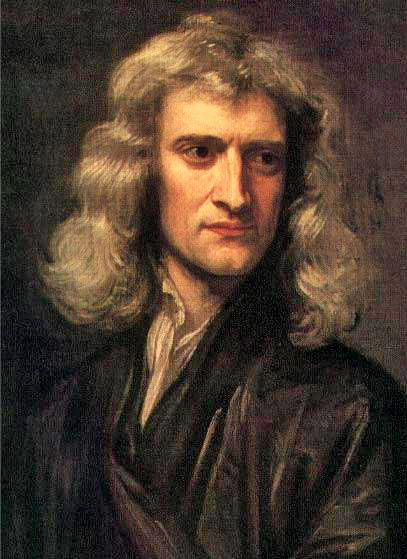Philosophiae Naturalis Principia Mathematica (1687), Scholium Generale (1713; 1726)
Kontext: This Being governs all things, not as the soul of the world, but as Lord over all: And on account of his dominion he is wont to be called Lord God παντοκρáτωρ or Universal Ruler. For God is a relative word, and has a respect to servants; and Deity is the dominion of God, not over his own body, as those imagine who fancy God to be the soul of the world, but over servants. The supreme God is a Being eternal, infinite, absolutely perfect; but a being, however perfect, without dominion, cannot be said to be Lord God; for we say, my God, your God, the God of Israel, the God of Gods, and Lord of Lords; but we do not say, my Eternal, your Eternal, the Eternal of Israel, the Eternal of Gods; we do not say, my Infinite, or my Perfect: These are titles which have no respect to servants. The word God usually signifies Lord; but every lord is not a God. It is the dominion of a spiritual being which constitutes a God; a true, supreme or imaginary dominion makes a true, supreme or imaginary God. And from his true dominion it follows, that the true God is a Living, Intelligent and Powerful Being; and from his other perfections, that he is Supreme or most Perfect. He is Eternal and Infinite, Omnipotent and Omniscient; that is, his duration reaches from Eternity to Eternity; his presence from Infinity to Infinity; he governs all things, and knows all things that are or can be done. He is not Eternity or Infinity, but Eternal and Infinite; he is not Duration or Space, but he endures and is present. He endures for ever, and is every where present; and by existing always and every where, he constitutes Duration and Space. Since every particle of Space is always, and every indivisible moment of Duration is every where, certainly the Maker and Lord of all things cannot be never and no where. Every soul that has perception is, though in different times and in different organs of sense and motion, still the same indivisible person. There are given successive parts in duration, co-existant parts in space, but neither the one nor the other in the person of a man, or his thinking principle; and much less can they be found in the thinking substance of God. Every man, so far as he is a thing that has perception, is one and the same man during his whole life, in all and each of his organs of sense. God is the same God, always and every where. He is omnipresent, not virtually only, but also substantially; for virtue cannot subsist without substance. In him are all things contained and moved; yet neither affects the other: God suffers nothing from the motion of bodies; bodies find no resistance from the omnipresence of God. 'Tis allowed by all that the supreme God exists necessarily; and by the same necessity he exists always and every where. Whence also he is all similar, all eye, all ear, all brain, all arm, all power to perceive, to understand, and to act; but in a manner not at all human, in a manner not at all corporeal, in a manner utterly unknown to us. As a blind man has no idea of colours, so have we no idea of the manner by which the all-wise God perceives and understands all things. He is utterly void of all body and bodily figure, and can therefore neither be seen, nor heard, nor touched; nor ought to be worshipped under the representation of any corporeal thing. We have ideas of his attributes, but what the real substance of any thing is, we know not. In bodies we see only their figures and colours, we hear only the sounds, we touch only their outward surfaces, we smell only the smells, and taste the favours; but their inward substances are not to be known, either by our senses, or by any reflex act of our minds; much less then have we any idea of the substance of God. We know him only by his most wise and excellent contrivances of things, and final causes; we admire him for his perfections; but we reverence and adore him on account of his dominion. For we adore him as his servants; and a God without dominion, providence, and final causes, is nothing else but Fate and Nature. Blind metaphysical necessity, which is certainly the same always and every where, could produce no variety of things. All that diversity of natural things which we find, suited to different times and places, could arise from nothing but the ideas and will of a Being necessarily existing. But by way of allegory, God is said to see, to speak, to laugh, to love, to hate, to desire, to give, to receive, to rejoice, to be angry, to fight, to frame, to work, to build. For all our notions of God are taken from the ways of mankind, by a certain similitude which, though not perfect, has some likeness however. And thus much concerning God; to discourse of whom from the appearances of things, does certainly belong to Natural Philosophy.
